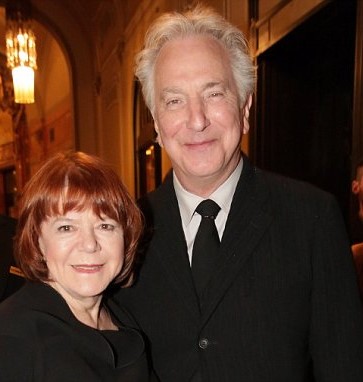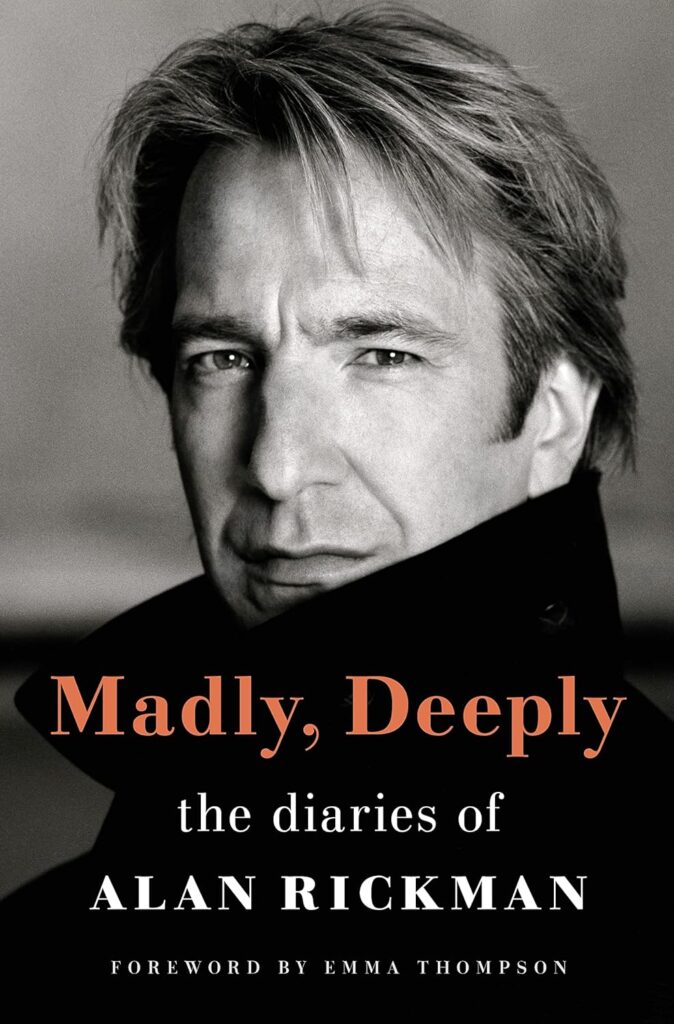Part of Our Ongoing Series About Folks Who Achieved Great Things Later In Life
In the late 20th and early 21st Century, the name Alan Rickman was nearly synonymous with acting brilliance and versatility. His extraordinary talent, magnetic on-screen presence and distinctive, resonant voice captivated audiences world-wide. While Rickman worked as an actor or director for almost all his adult life, it wasn’t until later in life that his career really flourished and he cemented his place as one of Britain’s most revered and respected actors. Let’s take a brief look at his remarkable story.
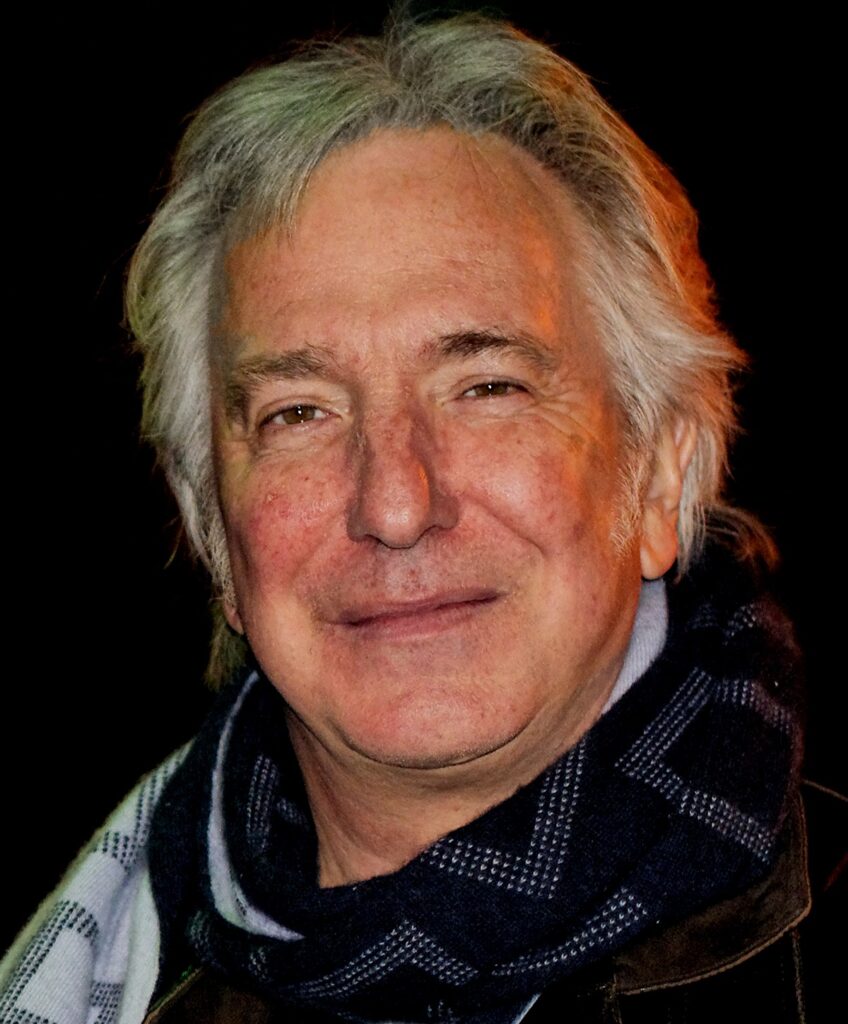
Image By Marie-Lan Nguyen – CC BY 2.0, https://commons.wikimedia.org/w/index.php?curid=92605976
Early Life and Education
Alan Rickman was born on February 21, 1946, in London, the son of a factory worker and a housewife. His family often struggled to make ends meet — especially after his father died of cancer when Alan was eight years old — but he always characterized his childhood as a happy one.
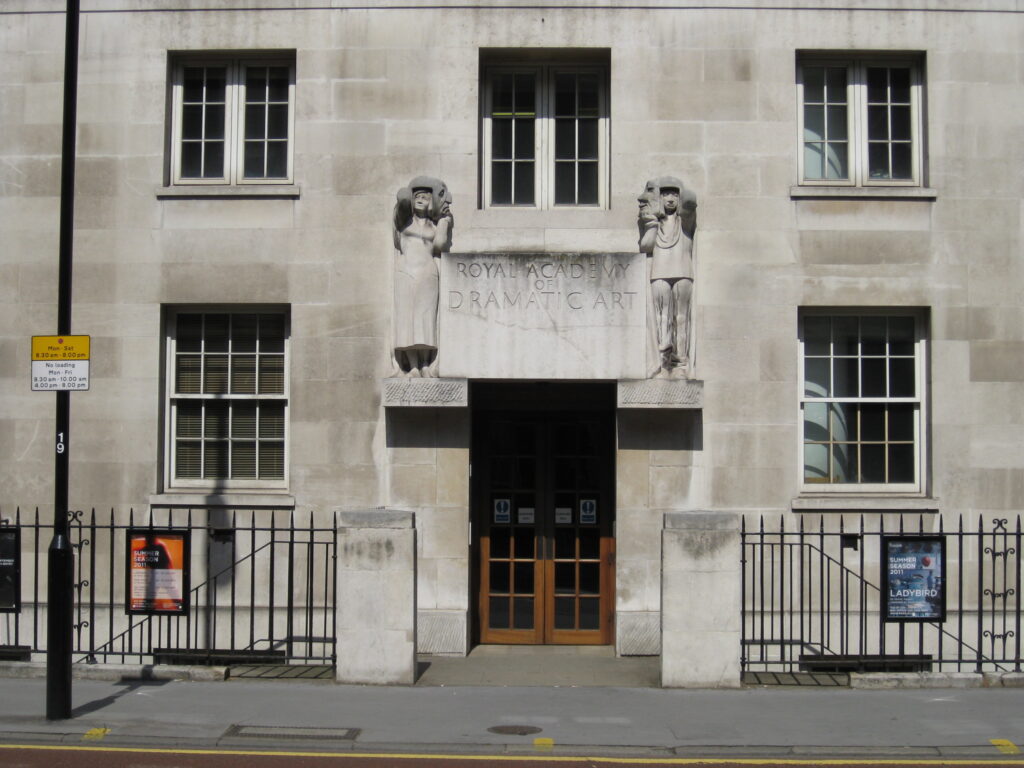
Image By Chemical Engineer – Own work, CC BY-SA 3.0
https://commons.wikimedia.org/w/index.php?curid=17864079
Although he discovered his passion for acting at an early age, his journey to stardom was a circuitous one. Rickman initially pursued a career in graphic design and even opened a successful graphic design studio. The allure of the stage proved too strong, however, and Rickman enrolled at the Royal Academy of Dramatic Art (RADA) at the age of 26.
Initial Career Successes
Rickman’s first acting breakthrough came in 1985 when he portrayed the complex and enigmatic character of Vicomte de Valmont in the Royal Shakespeare Company’s production of Les Liaisons Dangereuses. His mesmerizing performance garnered critical acclaim and earned him a Tony Award nomination. Building on his success in the theater, Rickman transitioned to the silver screen with memorable roles in films such as Die Hard (1988) and Robin Hood: Prince of Thieves (1991). He also made his mark on television in the BBC’s Shakespeare Series and a breakthrough performance in The Barchester Chronicles.
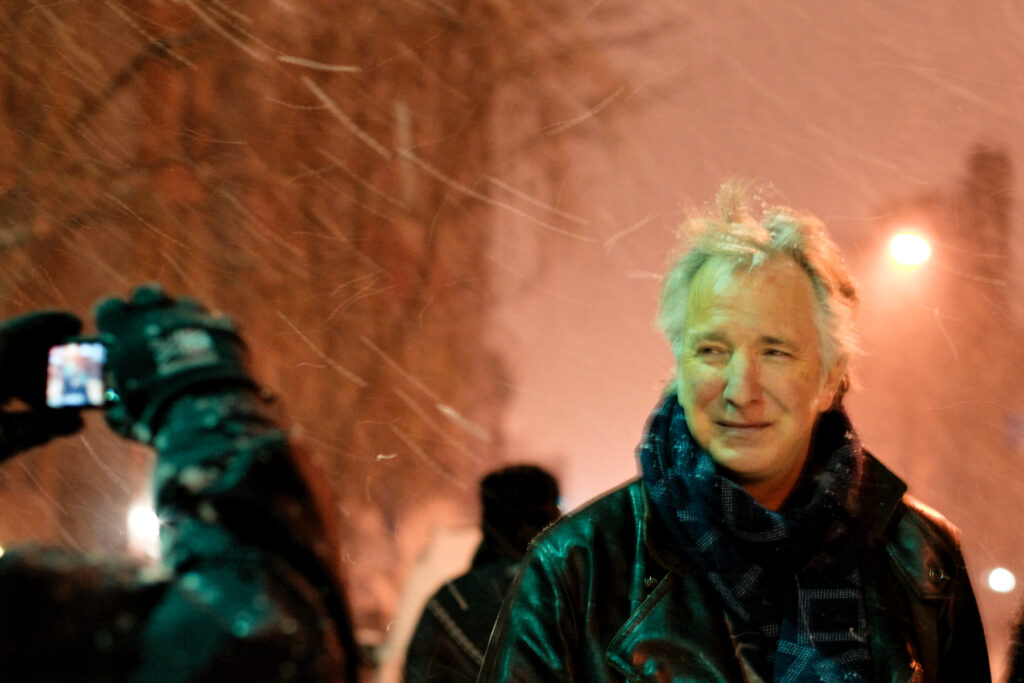
Image By Marie-Lan Nguyen/, CC BY 2.0,
https://commons.wikimedia.org/w/index.php?curid=92606080
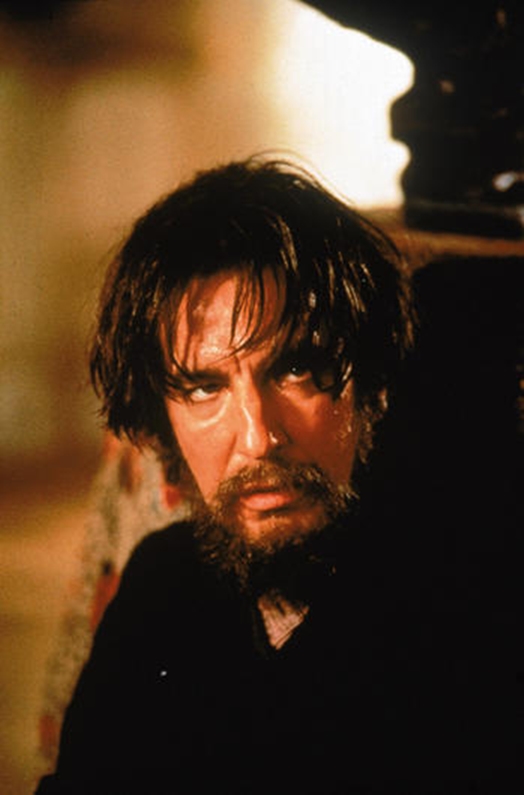
Image Courtesy of HBO via IMDb
https://www.imdb.com/title/tt0117442/
Soaring Successes Later In Life
In the year 1996, Alan Rickman turned 50. That year, his virtuoso performance as the title role “mad monk” in the HBO television biopic Rasputin: Dark Servant of Destiny earned him resounding and near-universal acclaim. In recognition of his outstanding work, he won nearly every award available. These included the Primetime Emmy Award for Outstanding Lead Actor in a Limited or Anthology Series or Movie, the Screen Actors Guild Award for Outstanding Performance by a Male Actor in a Miniseries or Television Movie, and the Golden Globe Award for Best Actor – Miniseries or Television Film.
During this latter part of his career, Alan Rickman showcased his incredible artistic range and delivered some of his most unforgettable performances. His ability to breathe life into complex and multifaceted characters was unparalleled, captivating audiences and leaving an indelible mark on stage and cinema.
Rickman’s 2001 star turn as the honorable Colonel Brandon in Sense and Sensibility — based on Jane Austen’s novel — brought a quiet strength and emotional depth to the character, earning him critical acclaim and a BAFTA Award nomination.
In 2003, it was the Christmas-themed, block-buster smash Love, Actually which showcased Rickman’s versatile acting skills to a world-wide audience. His performance stood out in the ensemble cast as he portrayed his character’s internal struggles and conflicts with depth and nuance.
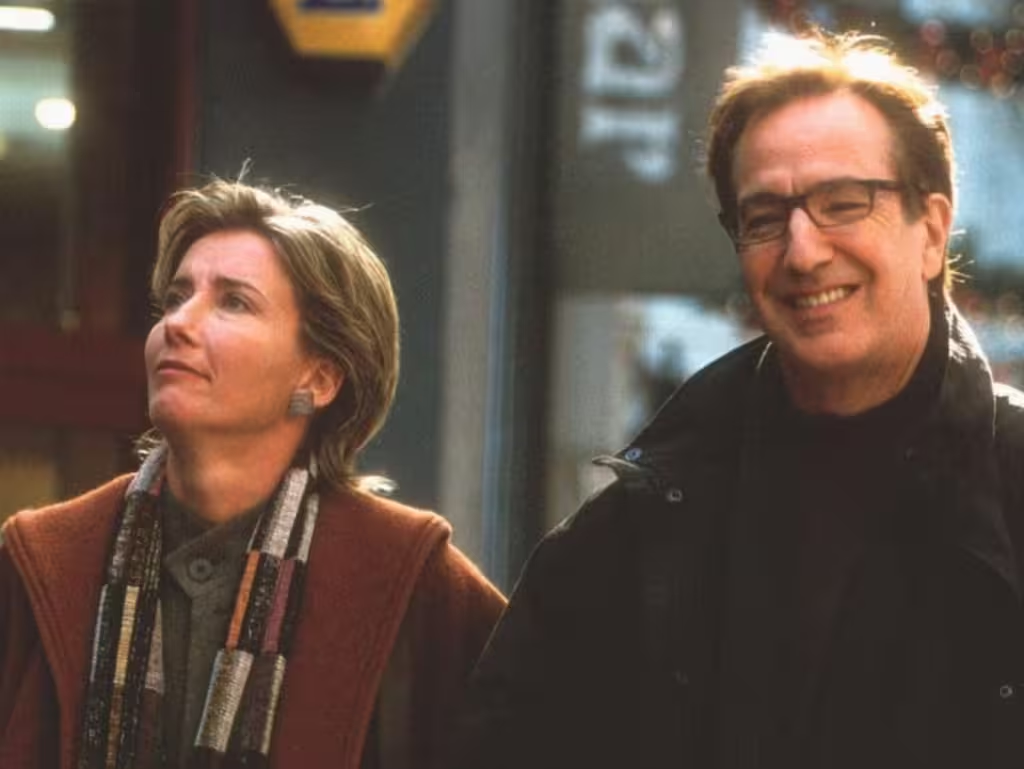
Image Courtesy of Universal Pictures via The Independent
https://images.app.goo.gl/BbmvEyboCHMR29Hd8
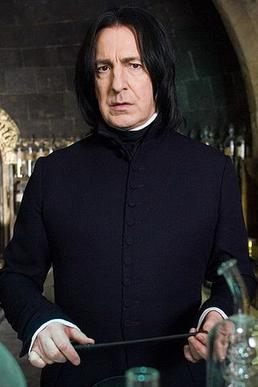
Image From Harry Potter and the Order of the Phoenix (film), Fair use, https://en.wikipedia.org/w/index.php?curid=12417053
And then there’s the big one — the role which made him a house-hold name in virtually any home with children in more than 190 countries — the enigmatic Severus Snape in the Harry Potter film series, based on J.K. Rowling’s beloved books. Rickman’s portrayal of Snape was nothing short of extraordinary, capturing the character’s depth, complexity, and underlying vulnerability. Through his nuanced performance, Rickman transformed Snape into an iconic figure, earning him widespread acclaim and endearing him to fans of all ages.
Death And Legacy
Alan Rickman passed away on January 14, 2016, at the age of 69, after a battle with pancreatic cancer. He had secretly married his long-time partner Rima Horton just a couple years prior. Rickman’s death — which came as a surprise to many, as he had kept his illness private — was a significant and profound loss to the world of acting. The news sent shockwaves throughout the entertainment industry and elicited an outpouring of grief and tributes from colleagues, friends, and countless fans across the globe.
Rickman is remembered as a consummate professional and kind, giving and beloved man. Known for his immense talent, commanding presence, distinctive voice and vast versatility, Rickman had left an indelible mark on stage and screen with his memorable performances.
Beyond his professional work, Alan Rickman was known for his philanthropic endeavors and involvement in various charitable causes. He supported and contributed to numerous organizations throughout his life.
Among the charitable organizations actively supported by Mr. Rickman:
- Saving Faces: Rickman was a committed supporter of the Saving Faces charity, which focuses on facial and oral surgery research and treatment. He served as a patron of the organization, actively raising awareness and funds for its work.
- RADA: As an alumnus of the Royal Academy of Dramatic Art (RADA), Rickman maintained a close connection with the institution. He contributed to RADA’s development and scholarship programs, helping aspiring actors gain access to quality training and education.
- Amnesty International: Rickman was involved with Amnesty International, a global human rights organization. He participated in several events and campaigns to raise awareness about human rights issues and support Amnesty International’s work.
- Dramatic Need: Dramatic Need is an organization that uses the arts to support vulnerable children and young people in Africa. Rickman was a patron of Dramatic Need and actively contributed to their efforts, including participating in fundraising events.
* * * * * * * * * * * * * *
So there you have it. Alan Rickman’s life and work exemplify the adage that age is but a number. While his early successes laid the foundation for his career, it was during the latter part of his life that he truly flourished as an actor, leaving an indelible legacy. His contributions to the world of cinema will continue to inspire and captivate audiences for generations to come, ensuring that his name remains etched in the annals of acting history.
By Steven Roberts

